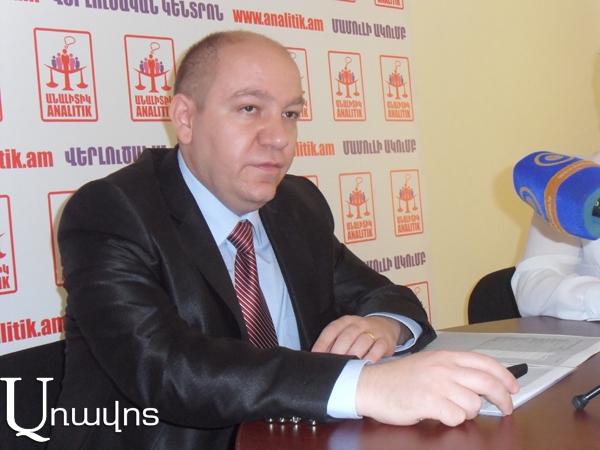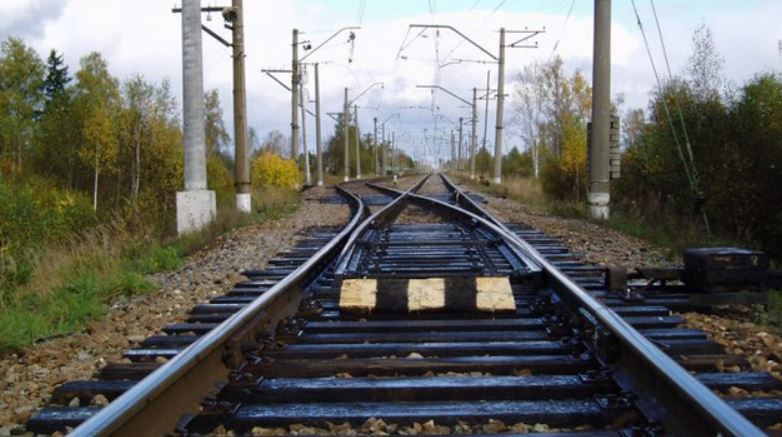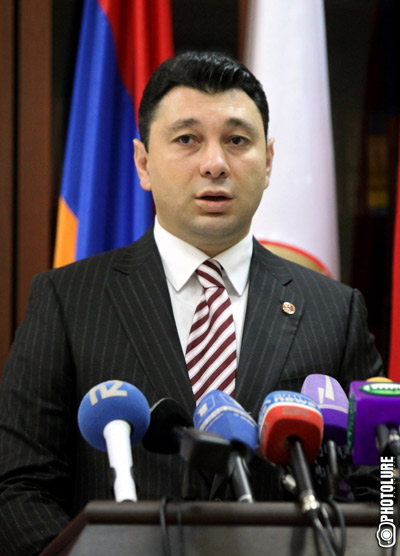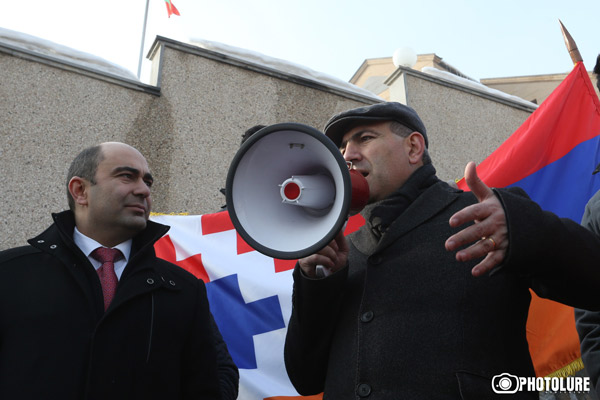France will strengthen its place in the Armenian economy.
The government delegation headed by Prime Minister Hovik Abrahamyan arrived in the Republic of France on July 3 for a two-day working visit. The Prime Minister of Armenia had meetings with the President of the National Assembly of France, Claude Bartolone, the French Prime Minister, Manuel Valls, and the mayor of Paris, Anne Hidalgo. Hovik Abrahamyan visited the exhibition dedicated to the 100th anniversary of the Armenian Genocide opened in the Paris City Hall, the Armenian Apostolic Church Diocese in France and in Europe, and met with the representatives of the French-Armenian community. Prime Ministers of Armenia and France attended the opening ceremony of the Armenian School in the city of Alfortville.
This is an official release that was provided regarding the Prime Minister’s visit to France. By the information of “Aravot”, however, the French side pledged to further increase its investments in Armenian, as well as giving a more solid appearance of its presence in the Armenian economy. The matter is about several major investment projects in agriculture, in particular, the construction of reservoirs. Four reservoirs that are built in Armenia, one of them will be built totally by the French investments. During the meetings, the French side also assured that it will continue actively contributing to the formation of the new relationship between the EU and Armenia to bring all the preliminary agreements obtained at the Riga summit to life and to deepen them. As to why these key layers of the negotiations were not published, it is not so clear, especially since it would be a good opportunity for providing a PR to the government and the prime minister under the current dire situation.
The agreements perhaps are not final, or the government is cautious about “becoming barefoot prior to getting into the water”. However, France is the second investment partner for Armenia. During these years, there were constantly great investment flows from France to Armenia, which has provided opportunities for the development of the economy in our country. Economist Vilen Khachatryan, analyzing the recent high-level contacts between Armenia and France, believes that the scopes of the two countries’ relations and cooperation are expanding. According to him, the government authorities are trying to find solutions also in this way to the problems of reduced or decreasing investments in our country.
Read also
The economist especially appreciates the fact that the French investments will be made in the water industry, be it a construction of water reservoirs, laying of water pipes, or other similar projects. “The problem of water resources in the future throughout the region, including Armenia, will have an expressed nature and will cause problems that will require settlement. Our neighboring country, Iran, for example, now, has water resource problems. Hence, in this sense, we can improve our position in the region, and the appropriateness of the investments in this direction are driven, in my opinion, by this factor. The studies perhaps have shown that we may have a certain expectation from Armenia in this sense.” As for the role of France as a bridge between Armenia and the EU relations, our interlocutor notes that although Armenia had certain contradictions with the EU Association Agreement by joining the Eurasian Economic System, however, Europe protects its interests, both from the perspective of partnership and maintaining the relationships.
In this respect, he believes that France can play the role of a locomotive without undermining the role of Germany, which also has a high-ranking scale in Armenia in terms of trade relations and partnership. Germany is the third trade partner with Armenia after Russia and China. Since Germany and France are considered to be the locomotive in the EU, then the development of Armenia’s relations with these countries and the integration will definitely lead to positive results. “Simply, we should be able to get to the point that the trade volumes in the partnership relations are enlarged and the trade relations are enhanced,” opines the economist.
To the question of whether Hovik Abrahamyan and his government members are able to competently work with these key countries, the economist described it as “provocative”, however, he noted that there is a team educated in abroad and mastering the rules and the principles of forming international trade-economic relations, who can take this burden on them. As to what extent the relationship will be effective, it will depend on purely economic factor: as to what extent the investments will be secure and profitable and what opportunities they will create for further enhancement of cooperation.
Nelly GRIGORYAN, “Aravot” daily























































